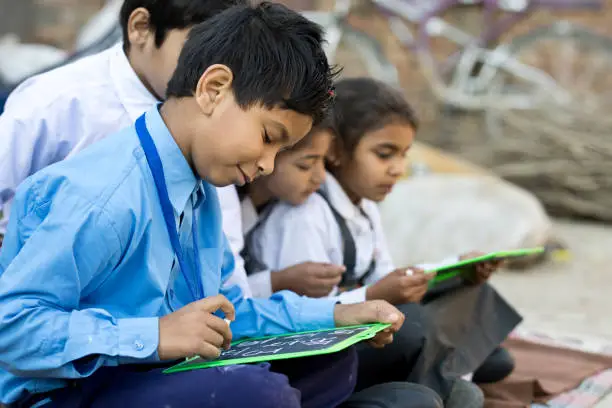Globalization has touched every aspect of our lives, and the education sector is no exception. In India, the influence of globalization has brought about significant changes in how education is delivered, accessed, and perceived. As a country with a rich cultural history and a rapidly growing economy, India is experiencing both the opportunities and challenges that globalization presents in the education space.
In this post, we’ll explore how globalization is reshaping education in India, highlighting the benefits it brings, as well as the obstacles that need to be addressed.
The Impact of Globalization on Indian Education
Globalization refers to the increasing interconnectedness of countries, economies, and cultures across the world. This process has dramatically influenced India’s education system, opening up new avenues for learning, innovation, and competition.
Here’s how globalization has impacted Indian education:
1. Access to International Educational Standards
One of the most noticeable effects of globalization in Indian education is the increased availability of international curricula and standards. Schools and universities are now adopting teaching methods and curricula that align with global best practices. Institutions such as CBSE and IB (International Baccalaureate) schools are providing students with an education that meets international benchmarks.
This shift is preparing Indian students to compete globally. With exposure to international standards, students are better equipped for higher education opportunities abroad and careers in global industries.
2. Rise of Online Learning Platforms
Globalization has also fueled the growth of online education in India. Platforms like Coursera, edX, and Udemy now offer Indian students access to courses from top global universities and institutions. This has made high-quality education available to anyone with an internet connection, regardless of where they live.
Online education has revolutionized learning, especially in rural or underprivileged areas where access to quality schools may be limited. Students can now learn at their own pace, choose from a wide variety of subjects, and gain certifications that enhance their employability in a competitive job market.
3. International Collaborations
Globalization has opened doors for international partnerships between Indian educational institutions and global universities. Many Indian universities now have exchange programs, dual degrees, and research collaborations with renowned international institutions like MIT and Harvard.
These partnerships expose students to global perspectives, new technologies, and advanced research methods, helping them broaden their horizons. Such collaborations also elevate the status of Indian universities on the global stage and attract students from around the world.
The Challenges of Globalization in Indian Education
While globalization has provided significant opportunities, it has also introduced challenges that India’s education system must address.
1. Growing Socioeconomic Divide
One of the key challenges of globalization in education is the widening socioeconomic gap. While wealthier families can afford private schools with international curricula and access to online resources, students from low-income families—particularly those in rural areas—often struggle to keep up. Public schools in these regions are still plagued by poor infrastructure, lack of technology, and teacher shortages.
This divide means that globalization’s benefits are not reaching all students equally, creating an uneven playing field in terms of educational opportunities and outcomes.
2. Pressure to Align with Global Models
As Indian institutions align themselves with global educational standards, there is growing concern that the country’s unique cultural and educational traditions may be sidelined. There is a risk that in the rush to adopt Western education models, India may lose sight of its rich indigenous knowledge systems, languages, and traditions.
While it’s important for Indian education to keep pace with global standards, it’s equally essential to preserve and promote India’s cultural heritage within the education system. Balancing both is critical to providing students with a holistic education that prepares them for global opportunities while staying rooted in their culture.
3. Commercialization of Education
Globalization has also contributed to the increasing commercialization of education in India. Private schools, especially those offering international curricula, are often expensive, making them inaccessible to many families. This trend has led to concerns that education is becoming more of a commodity than a basic right.
As private education grows, the public education system faces more pressure, particularly in terms of funding and resources. Without significant reforms and investments in public schools, the gap between private and public education could continue to widen.
The Future of Education in India: Embracing Globalization with Inclusivity
While globalization has brought immense opportunities to India’s education sector, it is crucial that the country addresses the challenges it faces. The future of Indian education lies in embracing globalization while ensuring equity and inclusivity.
1. Strengthening Public Education
To make the benefits of globalization accessible to all, it’s essential to invest in public education. This includes upgrading infrastructure, improving teacher training, and providing access to modern technologies, particularly in rural and underserved areas. By strengthening public schools, India can reduce the education gap and provide quality education to all students, regardless of their background.
2. Promoting Cultural Education Alongside Global Knowledge
While embracing global trends, it’s equally important to preserve India’s cultural identity within the education system. Schools should focus on integrating local knowledge, languages, and traditions alongside global curricula, giving students a well-rounded education that prepares them for both national and international opportunities.
3. Fostering Innovation and Critical Thinking
In the globalized world, education systems need to go beyond traditional rote learning. India must focus on fostering innovation, critical thinking, and problem-solving skills in students. Encouraging creativity and entrepreneurship from a young age will better prepare students for the challenges and opportunities of a global economy.
Conclusion
Globalization has transformed India’s education landscape, bringing with it opportunities for growth, innovation, and international collaboration. However, it has also highlighted challenges such as inequality, commercialization, and the risk of losing cultural heritage.
The future of education in India depends on how well the country can balance the opportunities of globalization with the need for inclusivity and cultural preservation. By investing in public education, promoting innovation, and ensuring equitable access to resources, India can create a system that not only prepares students for a globalized world but also strengthens the nation’s unique identity.
Through thoughtful reforms and investments, India can harness the benefits of globalization while building an education system that supports all its students, helping them succeed both locally and globally.







